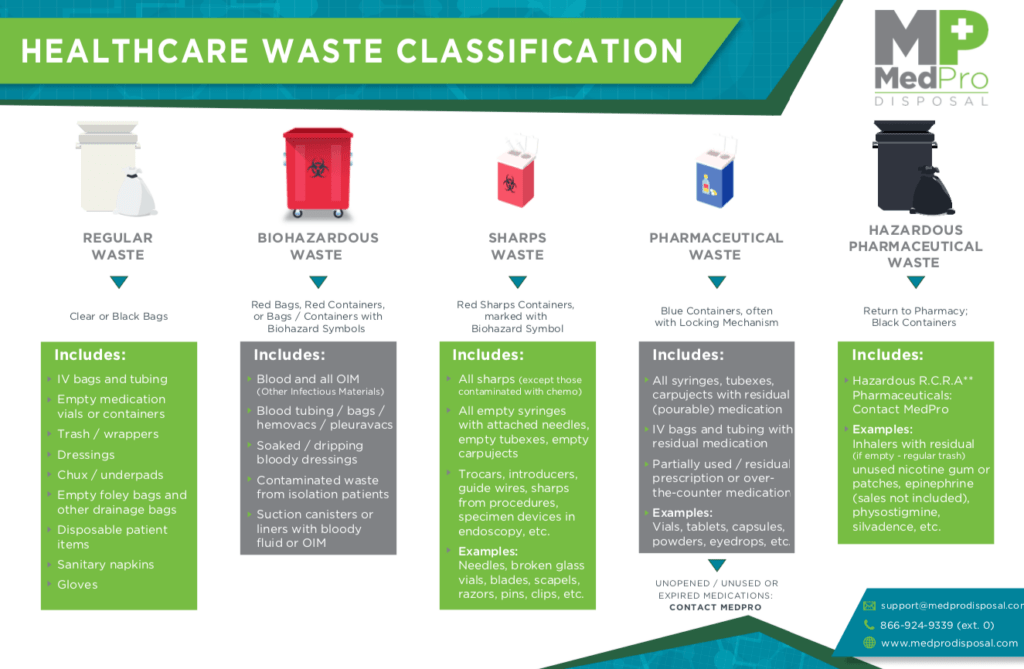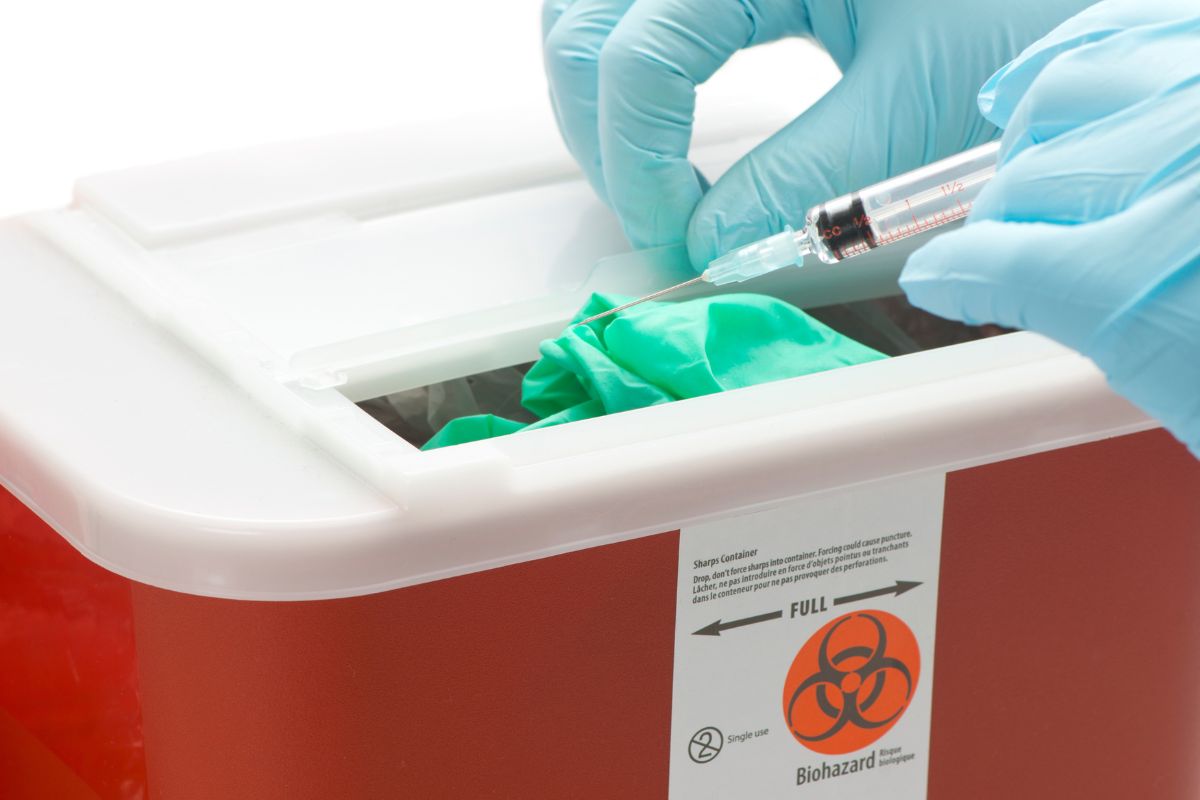Navigating Medical Garbage Disposal: Crucial Solutions for Health Care Facilities
Medical care facilities, whether tiny clinics or large healthcare facilities, are delegated with the responsibility of handling, dealing with, and disposing of a broad range of medical waste streams. Recognizing the crucial services that sustain medical waste disposal is not simply a matter of conformity but additionally an essential part in guarding public health and wellness and environmental health.
Regulatory Conformity Support
For health care facilities, making certain regulative compliance support is important to maintain correct handling and disposal of clinical waste. By partnering with regulative compliance professionals, healthcare facilities can remain current on progressing guidelines, alleviate risks linked with inappropriate waste disposal, and eventually add to a safer and much more lasting environment for all.
Waste Partition Support

Medical care centers need to offer clear standards and training to staff on how to set apart waste successfully. This consists of separating basic waste from dangerous products such as sharps, infectious waste, drugs, and chemical waste.
Collection and Transportation Solutions

Proper collection and transportation solutions are essential elements of the clinical waste disposal process in healthcare facilities. These solutions guarantee that unsafe materials are dealt with securely and in conformity with regulations to protect both the atmosphere and public health. Medical care facilities rely upon specialized waste administration firms to provide efficient collection and transport services customized to their requirements.
Clinical waste collection involves segregating different sorts of waste at the factor of generation, using color-coded containers or bags to distinguish between basic, unsafe, pharmaceutical, and other waste streams. Trained employees should execute this job to stop contamination and make sure correct disposal. As soon as accumulated, the waste is transferred in dedicated lorries geared up to manage unsafe products securely. These automobiles follow rigorous safety requirements and follow designated courses to licensed therapy facilities for disposal via techniques such as incineration, sanitation, or landfilling.
Therapy and Disposal Solutions
In the world of medical waste disposal for medical care facilities, after the important phase of collection and transport services, the focus shifts in the direction of implementing efficient therapy and disposal remedies. Treatment services usually include processes such as autoclaving, which makes use of steam under stress to sterilize the waste.
Disposal options include the final step in the medical waste administration process. Facilities might select land fill disposal, where treated waste is carefully transferred in marked areas. Medical Waste Disposal Services. Additionally, healthcare centers can choose to utilize waste-to-energy centers, which blaze waste to produce electricity. Reusing and resource recovery are additionally getting grip as lasting disposal alternatives for certain types of clinical waste products.
Reliable therapy and disposal solutions are paramount in making certain compliance with regulations and securing public health and wellness and the atmosphere. Medical care facilities need to thoroughly examine and select suitable approaches that align with their waste management goals and sustainability campaigns.
Staff Training and Education

To successfully manage clinical garbage disposal in he has a good point medical care centers, extensive team training and education and learning play an essential role in making sure adherence to regulative demands and keeping a secure setting. Appropriate training outfits team with the expertise and skills needed to deal with different types of medical waste, segregate them appropriately, and package them securely for disposal. By enlightening employees on the risks connected with inappropriate handling of clinical waste, centers can lower the possibility of crashes, contamination, and regulative offenses.

Verdict
To conclude, medical care facilities rely upon important clinical garbage disposal solutions to guarantee regulative compliance, proper waste partition, risk-free collection and transport, effective therapy and disposal, as well as staff training and education and learning. These services play a crucial role in preserving the health and wellness of both healthcare workers and the general public, highlighting check over here the relevance of appropriate monitoring of medical waste in medical care settings.
For healthcare facilities, making certain regulative compliance assistance is crucial to keep proper handling and disposal of clinical waste. Waste partition entails categorizing different types of clinical waste to make sure suitable handling, therapy, and disposal. This consists of separating general waste from unsafe products such as sharps, infectious waste, pharmaceuticals, and chemical waste.Clinical waste collection entails setting apart different kinds of waste at the factor of generation, utilizing color-coded bins or bags to distinguish between basic, harmful, pharmaceutical, and other waste streams.In the realm of clinical waste disposal for medical care facilities, after the crucial phase of collection and click here for more transport solutions, the focus shifts towards executing efficient treatment and disposal options.